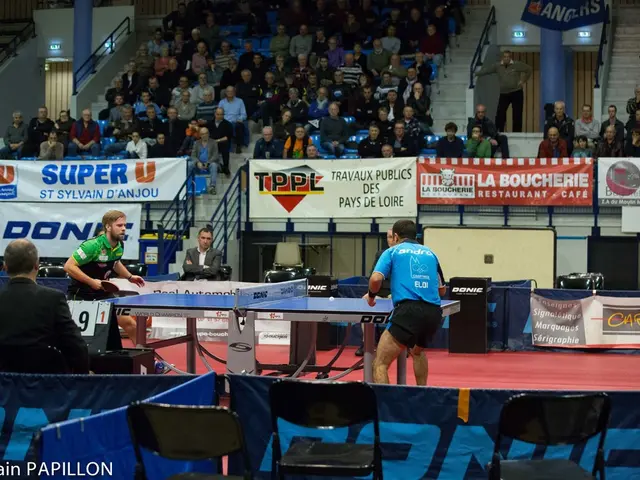Chancellor Merz's Europe Tour: Redefining German Foreign Policy
Merz, German Chancellor, pays visits to the European Union and North Atlantic Treaty Organization in Brussels. - Merz, the Federal Chancellor, scheduled to pay a visit to the EU and NATO headquarters in Brussels.
Chancellor Friedrich Merz kicked off his first foreign tour with a stop in Paris and Warsaw on Wednesday, setting the stage for a potential shift in German foreign policy. His agenda in Brussels echoes this promise, as he's expected to reinforce his pledge to the European Union (EU) and NATO. In line with the new federal government's foreign policy focus on Europe, Merz's recent statements have raised hopes among European partners that Germany might support a revamp of European fiscal rules to facilitate higher defense spending.
A New Chapter for European Alliances
Merz has placed great importance on strengthening European partnerships, with a particular focus on the Weimar Triangle, involving Germany, France, and Poland. His recent visits to Paris and Warsaw were designed to breathe new life into this alliance, which could pave the way for a more robust European defense strategy. This renewed emphasis on regional diplomatic efforts underscores Merz's aim to boost European security and unity.
The Stronger NATO-Transatlantic Bond
The Chancellor has emphasized the significance of transatlantic unity and America's role in ensuring European security. Despite earlier concerns regarding NATO's future, Merz has softened his stance, acknowledging America's indispensable role in safeguarding Europe. This shift highlights Germany's commitment to NATO and the transatlantic alliance, with the intention of bolstering these ties.
Germany's Growing Role in European Foreign Policy
Merz has expressed a desire for Germany to take a more active part in shaping European foreign policy. With key engagements such as the G7, NATO, and European Council meetings on the horizon, Merz aims to showcase leadership and tackle challenges like the ongoing conflict in Ukraine.
Balancing Act: European Autonomy vs. Atlanticism
While Merz's administration remains committed to NATO and the U.S., there's growing support for boosting European defense capacity and reducing dependence on America. This strategic approach strives to foster European strength while preserving transatlantic ties, reflecting a sophisticated foreign policy that encourages both cooperation and autonomy.
The Next Steps: A More Strengthened Europe
One of the potential changes that Merz's administration may consider is increased defense spending as part of a broader European effort to improve security capabilities. This adjustment aligns with the need to address emerging threats and contribute more effectively to NATO.
Merz will also need to manage U.S.-EU relations delicately, balancing his conservative Atlanticist stance with European interests. This endeavor involves handling the relationship intelligently to prevent unnecessary disagreements and foster European strength and unity.
In essence, Merz's recent visits represent a new phase in German foreign policy, with a renewed focus on European alliances, NATO cooperation, and a more assertive role for Germany in shaping European defense strategies, all while navigating complex transatlantic relations.
- The Commission has also been consulted on the draft budget for the European Union, with Chancellor Friedrich Merz aiming to reinforce his pledge to the EU and NATO.
- In general news, the European Union (EU) and NATO are anticipating potential changes to fiscal rules to facilitate higher defense spending, as announced by Chancellor Merz, in line with the new federal government’s foreign policy focus.
- Merz's emphasis on regional diplomatic efforts includes strengthening partnerships like the Weimar Triangle, which involves Germany, France, and Poland, and could pave the way for discussions about war-and-conflicts and politics.
- Merz's recent statements have raised hopes for a more robust European defense strategy, which could impact the sports and leisure sectors, such as football and the Champions League, as improved security can lead to increased tourism and business opportunities in European leagues.
- NATO and the transatlantic alliance can expect a boost in ties, as Chancellor Merz has softened his stance on the future of NATO and acknowledged America's indispensable role in safeguarding Europe.
- For parts of the public, the European Union's strategy to foster European strength while preserving transatlantic ties can be compared to the football world, where European leagues, like the Champions League, aim to challenge and learn from each other while maintaining cooperation and a sense of unity.








